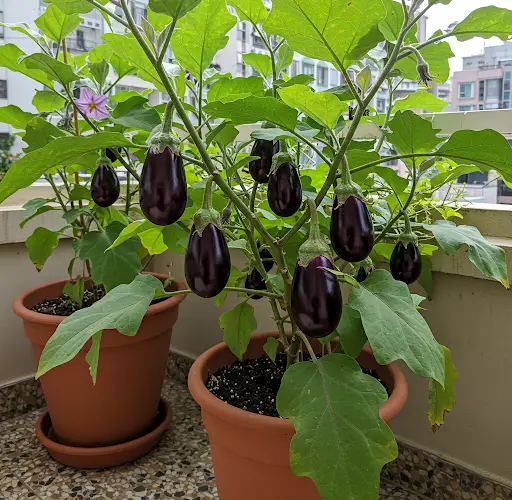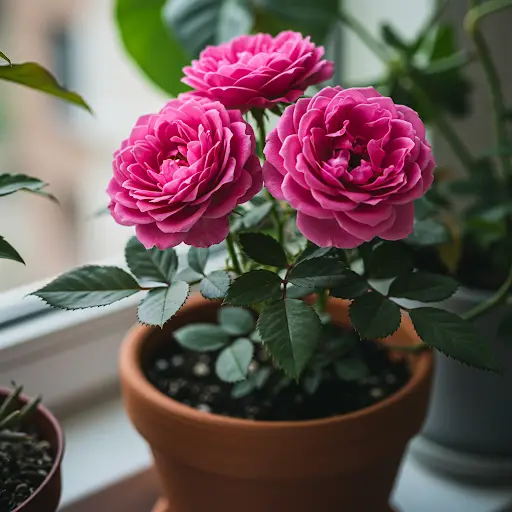How I Revive Old Eggplants to Become Green and Produce Lots of Fruits
Eggplants, also known as aubergines, are a popular vegetable in many cuisines, prized for their versatility and rich flavor. However, as they age, eggplants often become weak, yellowish, and less productive. Instead of discarding them, you can rejuvenate old eggplants and bring them back to life, making them lush, green, and abundant in fruit production. With the right techniques and proper care, these aging plants can continue to yield for multiple seasons. In this article, I’ll share my tried-and-tested methods for reviving old eggplants and turning them into productive plants once again.
Understanding Why Eggplants Decline
Eggplants typically produce well for one growing season, but they can become weak due to several reasons:
- Nutrient depletion – Over time, soil loses essential nutrients, affecting plant health.
- Pest infestations – Aphids, spider mites, and other insects weaken eggplants by feeding on their leaves and stems.
- Diseases – Fungal infections, bacterial wilt, and viruses can cause yellowing, leaf drop, and reduced fruiting.
- Lack of pruning – Overgrown branches drain energy from the plant, reducing productivity.
- Watering issues – Inconsistent watering can stress the plant, leading to stunted growth.
Understanding these factors is the first step in successfully reviving an old eggplant plant.
Step-by-Step Process to Renovate Old Eggplants
1. Prune the Plant for New Growth
Pruning is essential to rejuvenate an aging eggplant. Follow these steps:
- Cut back the plant to about half its original height to encourage new shoots.
- Remove all dead, yellow, or diseased leaves and stems.
- If your eggplant is overgrown, thin out some of the inner branches to allow better airflow and sunlight penetration.
- Ensure you use clean, sharp pruning shears to prevent infections.
Pruning helps redirect the plant’s energy toward new, healthy growth, increasing the chances of fruit production.
2. Improve Soil Quality
Eggplants are heavy feeders, meaning they need nutrient-rich soil to thrive. If your plant is struggling, the soil may be exhausted. Rejuvenate it by:
- Adding compost or well-rotted manure to replenish essential nutrients.
- Mixing organic fertilizers rich in nitrogen, phosphorus, and potassium.
- Applying a layer of mulch to retain moisture and prevent weeds.
- Using liquid seaweed extract or fish emulsion to give the plant an immediate nutrient boost.
Healthy soil is the foundation for a thriving eggplant plant.
3. Check for Pests and Diseases
Aging eggplants are more susceptible to pests and diseases. Regularly inspect the plant and take action if you notice signs of trouble:
- Use neem oil or insecticidal soap to control aphids, mites, and whiteflies.
- Remove and destroy infected leaves to prevent the spread of fungal diseases.
- Introduce beneficial insects like ladybugs to keep harmful pests in check.
- Rotate crops or move the plant to a different spot if it has been in the same soil for multiple years to reduce soil-borne diseases.
By keeping pests and diseases under control, your eggplant will have a better chance of rejuvenation.
4. Watering the Right Way
Eggplants require consistent moisture, but overwatering or underwatering can stress the plant. Follow these guidelines:
- Water deeply at least twice a week, ensuring moisture reaches the roots.
- Avoid overhead watering, which can promote fungal diseases—water at the base instead.
- Use mulch to maintain soil moisture and reduce evaporation.
- Check the soil by inserting your finger about an inch deep; if it feels dry, it’s time to water.
Proper watering practices will help the plant regain its vigor and encourage fruit production.
5. Provide Proper Sunlight
Eggplants need at least 6-8 hours of sunlight daily to grow well. If your plant is in a shaded area, consider moving it to a sunnier location or using reflective surfaces to maximize light exposure. Lack of sunlight can lead to weak growth and fewer fruits.
6. Boost Growth with Organic Fertilizers
Reviving an old eggplant requires extra nourishment. Fertilize the plant every two weeks using:
- A balanced organic fertilizer (10-10-10 or 5-10-10 NPK).
- A homemade compost tea to encourage microbial activity.
- A potassium-rich fertilizer (like banana peel water) to enhance fruiting.
- Epsom salt (magnesium sulfate) mixed with water to strengthen stems and improve photosynthesis.
Regular feeding will restore the plant’s vitality and improve fruit yield.
7. Encourage Pollination for More Fruits
Eggplants rely on bees and other pollinators, but if natural pollination is insufficient, you can assist the process by:
- Gently shaking the flowers to release pollen.
- Using a small brush or cotton swab to transfer pollen between flowers.
- Growing companion plants like marigolds or basil to attract pollinators.
Better pollination leads to more abundant fruiting.
8. Replanting or Container Gardening
If your eggplant has been growing in the same spot for years, the soil may be depleted. Consider transplanting it into a fresh pot with nutrient-rich soil. Choose a container that is at least 12-18 inches deep to allow ample root growth.
Container gardening also helps control soil conditions and reduces the risk of soil-borne diseases.
The Results: A Thriving, Productive Eggplant
After following these steps, your old eggplant should start showing signs of rejuvenation. New green leaves will emerge, and within a few weeks, you’ll see fresh flowers and eventually new fruits forming. By maintaining proper care, you can continue harvesting eggplants for months, extending the plant’s lifespan beyond a single growing season.
Final Thoughts
Reviving an old eggplant isn’t just a way to save an aging plant—it’s also a cost-effective and sustainable gardening practice. Instead of starting from scratch, giving your existing eggplants a second life can yield impressive results with minimal effort. By pruning, enriching the soil, controlling pests, watering properly, and ensuring adequate sunlight, you can transform a weak, declining plant into a lush, green, and highly productive one.
With patience and proper care, your eggplants will not only survive but thrive, providing you with a bountiful harvest for seasons to come. Try these renovation techniques today and watch your eggplants flourish once more!



